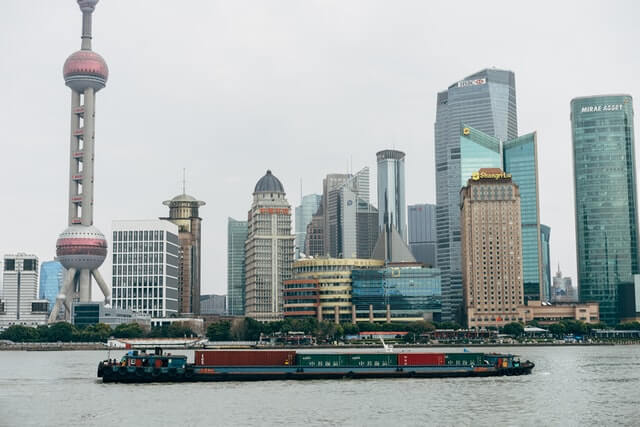
Key takeaways:
- Since 2020, China’s Supreme People’s Procuratorate has been exploring to establish a corporate compliance non-prosecution system.
- Among the pilot attempts of local procuratorates, two modes of corporate compliance non-prosecution system are taking shape: one is “Mode A - relative non-prosecution & procuratorial suggestion”, the other one being “Mode B - conditional non-prosecution”.
- In June 2021, the SPP released the “Guiding Opinions on Establishing a Third-Party Supervision and Evaluation Mechanism for the Compliance of corporates Involved in Cases (for Trial Implementation)” (關于建立涉案企業合規第三方監督評估機制的指導意見(試行)), signaling the adoption of “Mode B - conditional non-prosecution” when introducing a third-party supervision and evaluation mechanism.
The non-prosecution in corporate compliance(in Chinese, "合規不起訴”) refers to a system under which procuratorates can order corporates suspected of crimes, which meet specific requirements, to develop and undertake to implement a compliance management system. Upon expiry of the inspection period, the procuratorate shall make a non-prosecution decision provided that the suspected corporate has passed its inspection.
In March 2020, China’s Supreme People’s Procuratorate (SPP) set out to build up a non-prosecution system for corporate compliance on the basis of US and UK approaches to Deferred Prosecution Agreements (DPAs).
I. Preliminary Exploration
In March 2020, the SPP launched a pilot program, i.e, procuratorates carried out the corporate compliance supervision regime under the principle that corporates suspected of committing crimes would not be arrested, prosecuted, or sentenced to criminal penalties in accordance with the law.
The SPP designates six pilot procuratorates, including People's Procuratorates in Pudong New District of Shanghai Municipality, Nanshan District and Baoan District of Shenzhen Municipality, Zhangjiagang of Jiangsu Province, and Tancheng of Shandong Province. The six local procuratorates are exploring how to conduct the corporate compliance non-prosecution system in corporate-related criminal cases.
Back then, the SPP did not have in place a preliminary plan for the specific rules of such system, and it is the local procuratorates that were exploring the feasible model.
II. Pilot Results
Among the pilot attempts of local procuratorates, two modes of corporate compliance non-prosecution system are taking shape: one is “Mode A - relative non-prosecution & procuratorial suggestion”; the other one being “Mode B - conditional non-prosecution”.
1. Mode A - Relative non-prosecution & procuratorial suggestion
The procuratorate will give procuratorial suggestions to the corporate suspected of committing crimes while making the decision on non-prosecution. The corporate shall be urged to take relevant rectification measures, including establishing and improving the compliance system and corresponding management system, developing a compliance operation plan, setting up a team specialized in compliance management and control, and implementing measures for risk prevention and control.
There is a view, however, that the incentive effect in this mode is unsatisfactory. As the procuratorate has made a decision on relative non-prosecution, it means that the corporates suspected of committing crimes have already been exempted from criminal liability to some extent. In this case, the motivation of corporates to continue to implement the procuratorial suggestions will be greatly reduced, so it is difficult for the procuratorate to effectively urge corporates to take ratification measures.
2. Mode B - Conditional non-prosecution
The mode of conditional non-prosecution consists of the following processes:
(1) the corporate suspected of committing crimes expressly pleads guilty and accepts the criminal punishment that may be imposed on itself;
(2) the corporate issues an undertaking for compliance rectification, and formulates a compliance rectification plan (or sign a compliance supervision agreement);
(3) the procuratorate sets an inspection period for compliance supervision;
(4) independent compliance monitors or compliance supervisors including lawyers, accountants, tax agents and other professionals shall work at the corporate to supervise its implementation of the compliance plan or compliance supervision agreement;
(5) upon the expiration of the inspection period, the procuratorate shall continue the public hearing and determine whether to make a non-prosecution decision or not.
Compared with Mode A, Mode B has a better incentive effect, as an inspection or assessment is to be made before the decision is rendered.
III. Lessons Learned
After the one-year pilot period, in April 2021, the SPP released the “Work Plan on Launching the Pilot Program for Corporate Compliance Reform” (“the Plan”, 關于開展企業合規改革試點工作方案). To promote a wide-scale pilot program in more cities, the SPP officially launched the second phase of the pilot program.
Pursuant to the SPP’s introduction to the Plan, it defined the system of non-prosecution in corporate compliance as:
With regard to the corporates criminal cases that procuratorates handle, when making the decision not to arrest, not to prosecute according to law or proposing a lighter sentence based on the system of “imposing lenient punishments on those pleading guilty and accepting punishments”, for the suspected specific crimes committed by corporates, procuratorates shall urge the corporates involved to make compliance commitment and actively make rectification and implementation in combination with the actual situation of the cases, so as to promote the lawful business operation of corporates in compliance with laws and regulations, and to reduce and prevent corporate crimes as well.
The SPP has not yet published the full text of the Plan, and we don't know which of the two modes it adopts for the moment.
However, when introducing this Plan, the SPP mentioned “We shall explore the establishment of a third-party supervision mechanism for corporate compliance. Through third-party supervision, we shall supervise and promote corporates to fulfill their compliance commitments."
This indicates that the SPP agrees with this practice: a professional third-party organization will be responsible for supervising the implementation of corporate compliance rectification plans.
On this basis, in June 2021, the SPP released the “Guiding Opinions on Establishing a Third-Party Supervision and Evaluation Mechanism for the Compliance of corporates Involved in Cases (for Trial Implementation)” (the “Guiding Opinions”, 關于建立涉案企業合規第三方監督評估機制的指導意見(試行)).
Pursuant to the Guiding Opinions, the third-party mechanism means that when handling corporate-related criminal cases, the procuratorates shall refer the cases satisfying applicable requirements for the pilot program for the corporate compliance reform to a third-party supervision and evaluation organization selected and appointed by the management committee of the third-party supervision and evaluation mechanism, which will investigate, evaluate, supervise and inspect the compliance commitment of the corporates involved in the case. The investigation results will serve as an important reference for procuratorates to handle cases according to law.
The aforementioned committee is made up of the procuratorate, other government departments with market supervision functions, and two institutions with similar nature to chambers of commerce - All-China Federation of Industry and Commerce and China Council for the Promotion of International Trade (CCPIT).
Pursuant to the Guiding Opinions, the procuratorate will decide whether to approve or disapprove the arrest, prosecute or not, and whether to change mandatory measures based on the results of the third-party supervision and evaluation for the corporate’s compliance rectification.
As a result, it can be inferred that the SPP adopted the second mode mentioned above, i.e., the Mode B of conditional non-prosecution under which assessment will be made before the decision.
IV. Our Comments
Corporate compliance non-prosecution is not a regime already stipulated in China’s existing laws, but an innovative attempt of the SPP.
If the SPP’s innovative attempt proves feasible, we estimate that in the future, the SPP may clarify the regime in the form of judicial interpretations. It is also possible that the regime will be written into laws guided by the legislature.
SPP’s implementation of the corporate compliance non-prosecution system is one of the examples of SPP’s continuous deeper involvement in society and economy.
As we mentioned in previous posts, the procuratorial system in China can no longer be ignored.
We also mentioned that the procuratorate is strengthening its other functions after its major function -- investigating the embezzlement, corruption and offenses in office -- was transferred to the newly-established Supervisory Commission.
Public interest litigation is one of the ways it adopts, and the system of corporate compliance non-prosecution is another attempt.
In August 2021, the Communist Party of China (CPC) released the “CPC Central Committee's Opinions on Strengthening the Legal Supervision of Procuratorates in the New Era” (中共中央關于加強新時代檢察機關法律監督工作的意見), indicating that the procuratorial organs have gained more support.
Photo by Markus Winkler on Unsplash
Contributors: Guodong Du 杜國棟









